‘Sex and the City’ is back — and Gen Z isn’t going to be able to handle it
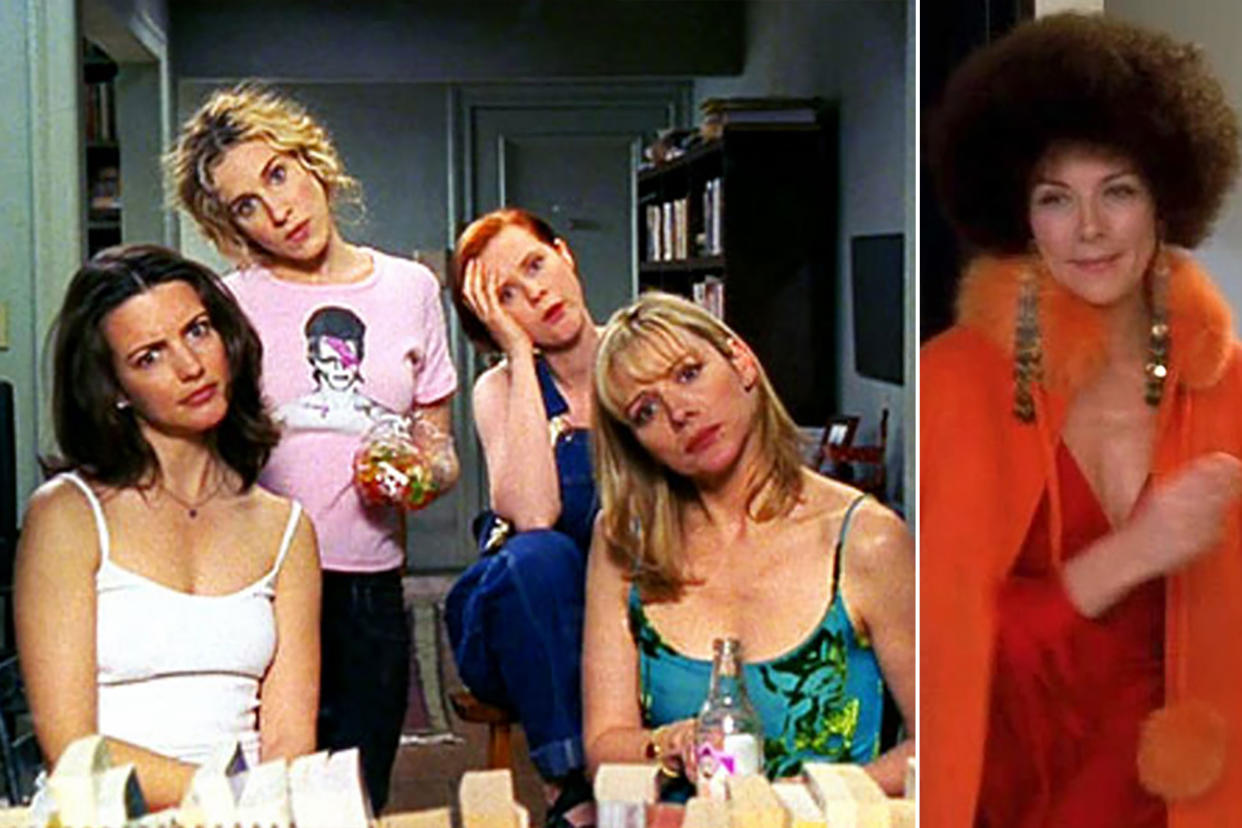
As I re-watched “Sex and the City” this week, I couldn’t help but wonder … will Gen Z have a total meltdown and cancel Carrie Bradshaw?
The classic New York sitcom just started streaming on Netflix, exposing the racy, sexed-up exploits of Carrie, Samantha, Charlotte and Miranda to a new generation — many of whom weren’t even born when the series premiered in 1998 or when it ended in 2004.
And I’m not sure all of my fellow Zoomers are ready to time-travel back to an age when seemingly no one batted an eye at cultural appropriation or gay jokes. Let alone a character casually admiring Donald Trump.
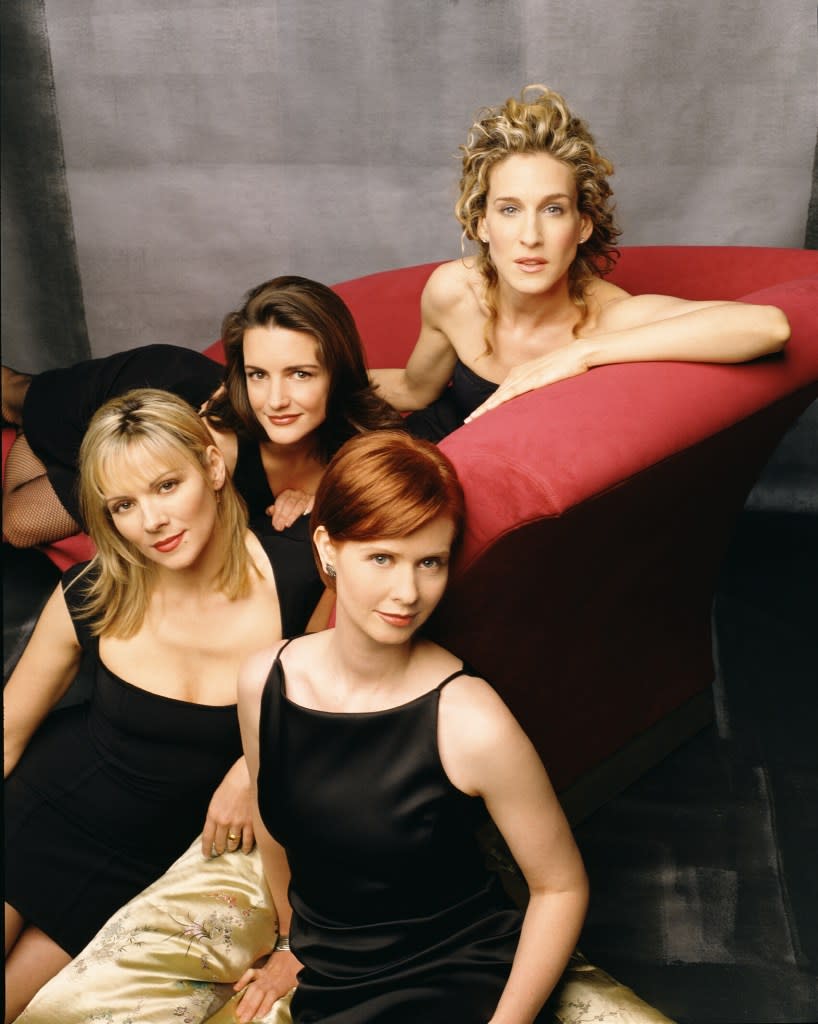
But the future president is name-dropped right in the series premiere, as Samantha describes Carrie’s main love interest, Mr. Big, as the “next Donald Trump.”
Reader, it is meant as a sincere compliment.
If young viewers keep watching to Season 2, they’ll see Trump himself — thinner, younger, still a fan of spray-tanning — lock eyes with Samantha Jones (Kim Cattrall) at a cocktail bar.
Says narrator Carrie Bradshaw (Sarah Jessica Parker): “Samantha, a Cosmopolitan and Donald Trump … you just don’t get more New York than that.”
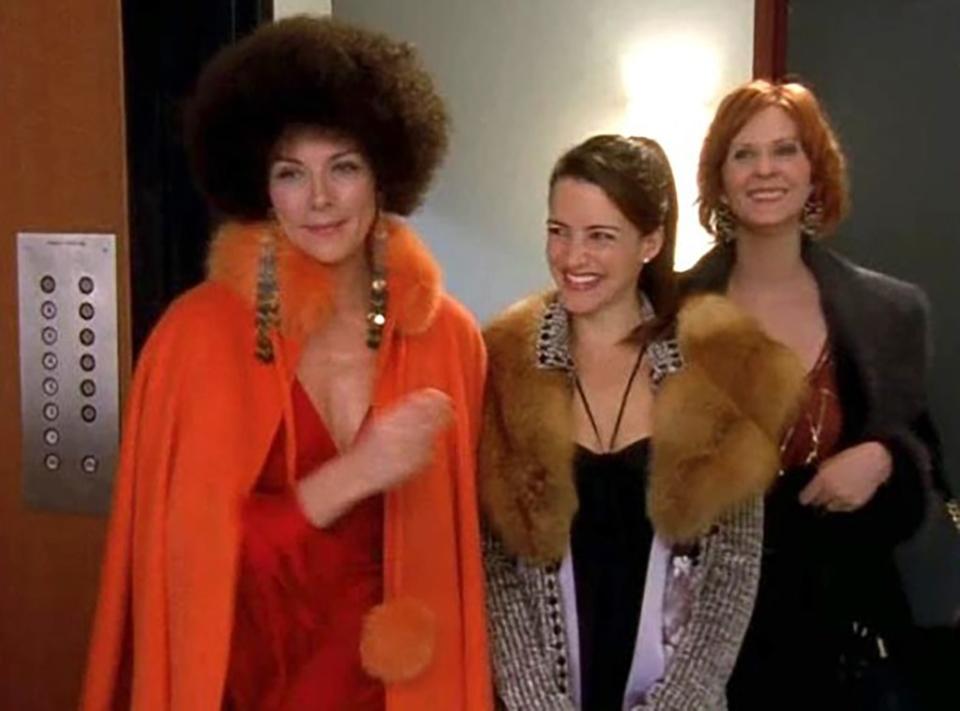
Something tells me there will never be a flashback to that in the painfully politically correct “SATC” reboot, “And Just Like That.”
“Donald Trump just randomly showed up y’all were right maybe gen z isn’t ready for this,” one X user has already declared.
As someone who was a mere teen when Trump launched his 2016 presidential campaign, I have to admit that seeing him be ogled in a sitcom was kind of a jump scare.
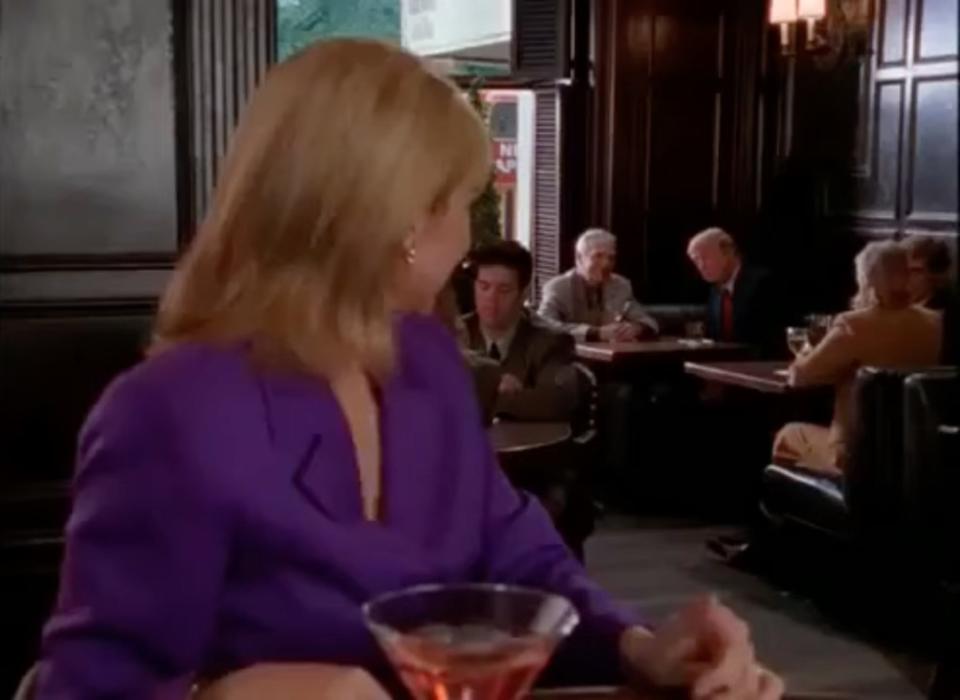


But there are plenty of more inflammatory moments — like when cougar Samantha tells her much younger boyfriend in Season 6, “You should stay at the party, Harvey Weinstein is here!”
I expect new viewers will scoff at hearing Carrie describe her jewelry as “ghetto gold” and seeing Samantha wearing an afro wig while carrying a hair pick.

Nor do I think they’ll appreciate when she dates a black man in Season 3 and announces, “I don’t see color. I see conquests.”
But it’s not just Cattrall’s character who is on the verge on cancellation.
“Watching sex and the city on Netflix and idk you guys carrie seems really problematic,” one X user said.
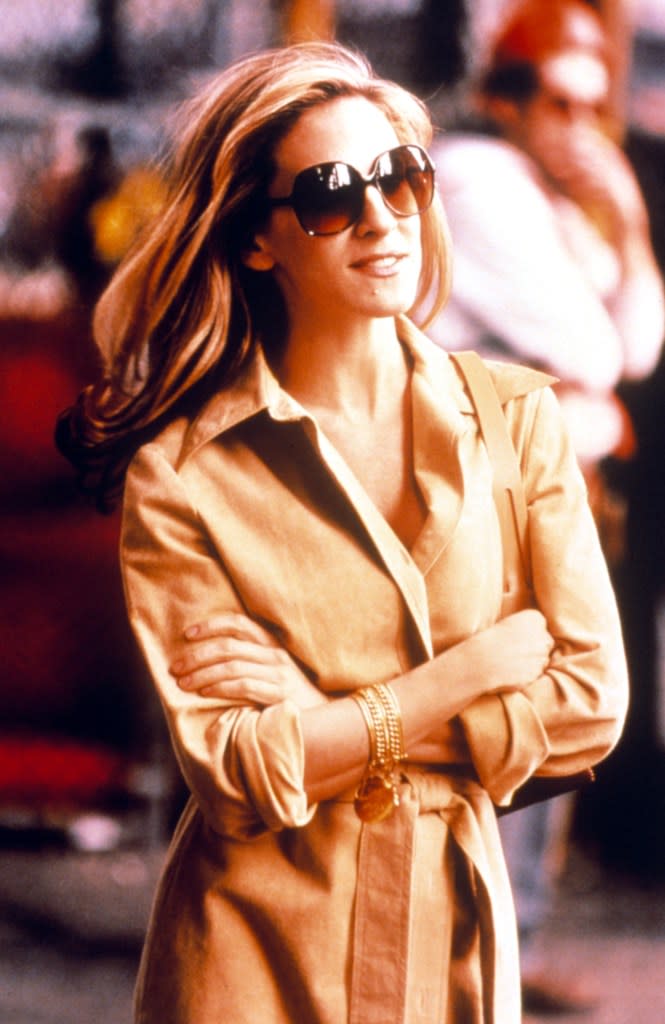
Already on X, the show has been declared “literally the most problematic show for women” that “DOES NOT AGE WELL.” It has also been dubbed “straight up toxic dating bootcamp.”
Only the trad-wife crowd will enjoy Charlotte York’s view of female independence: “Everyone needs a man, that’s why I rent. If you own and he still rents, then the power structure is all off. It’s emasculating. Men don’t want a woman who’s too self-sufficient.”

These days, we’re constantly reminded — by women’s magazines and shows like “Euphoria” — that we’re living in the age of fluidity. One in five Gen Z women identify as bisexual per a recent Gallup poll.
But in a Season 3 episode of “SATC” from 2000, Carrie breaks up with a boyfriend because he is bisexual.
“I’m not even sure bisexuality exists. I think it’s just a layover on the way to Gay Town,” she tells her pals over a diner brunch.
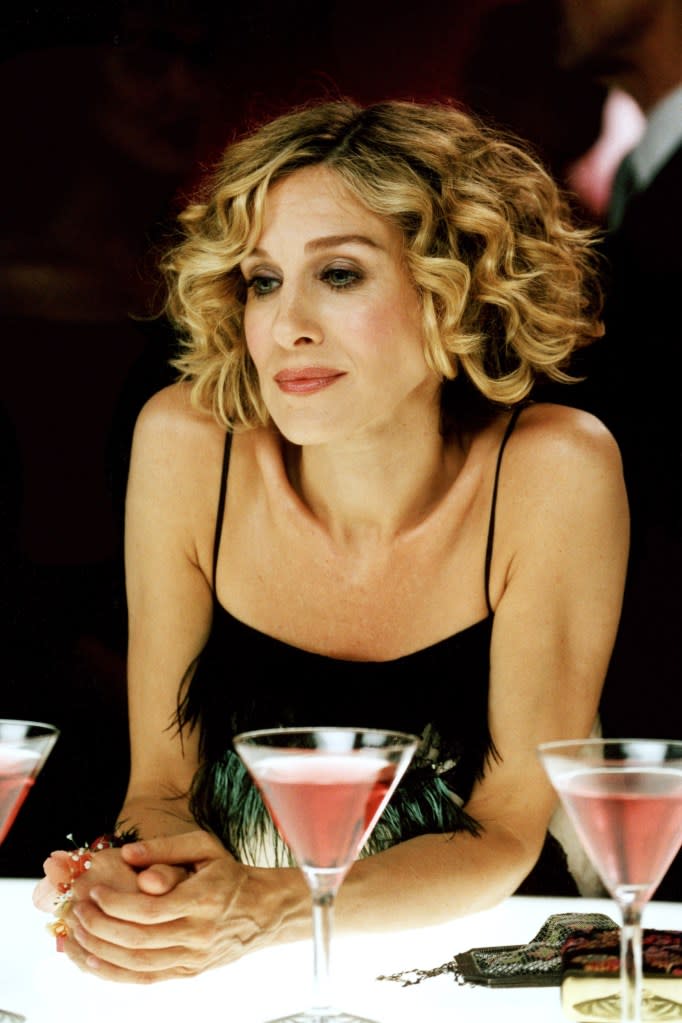
Their response? Miranda (Cynthia Nixon) proceeds to call bisexuality “greedy.” Charlotte agrees: “Pick a side and stay there!”
Cue the trigger warnings. People who righteously enjoy Miranda, as my colleague Kirsten Fleming once wrote, “topless in a hot tub with her nonbinary lover” on “And Just Like That” won’t be able to take it.
“SATC” creator Darren Star once said that New York City was the show’s unofficial “fifth character.” So it only makes sense that the Big Apple, too, gets in on the politically incorrect action.
When Samantha moves to the then newly trendy Meatpacking District, she complains about “paying a fortune to live in a neighborhood that’s trendy by day and tranny by night” — a reference to the transgender prostitutes who used to frequent the far west side.
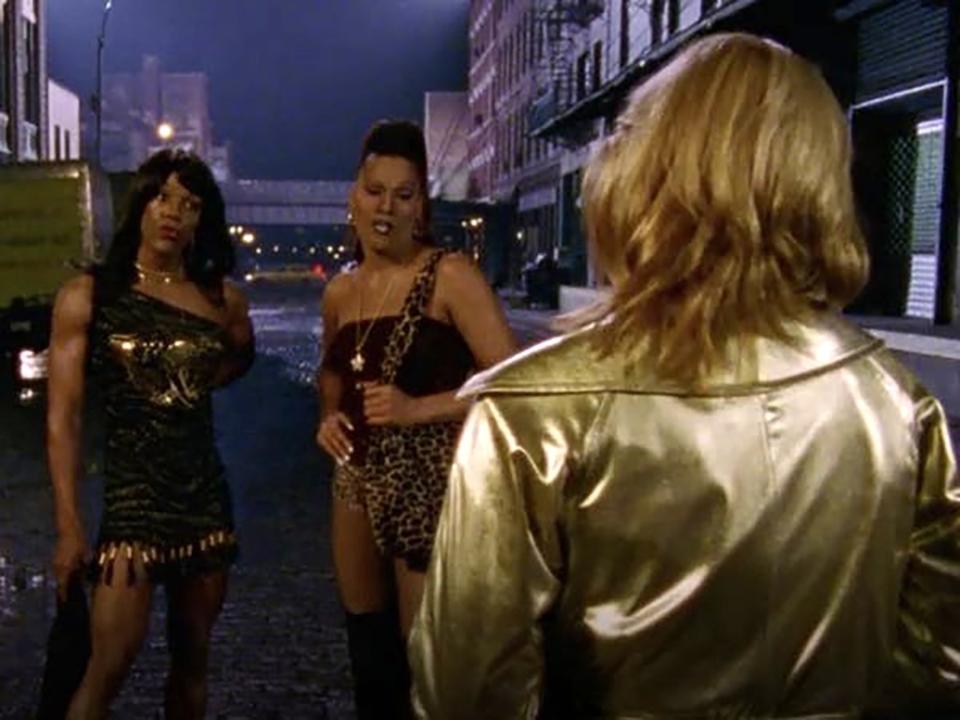
I can already imagine the cries from the dorm rooms of Columbia and NYU, ringing out over the city.
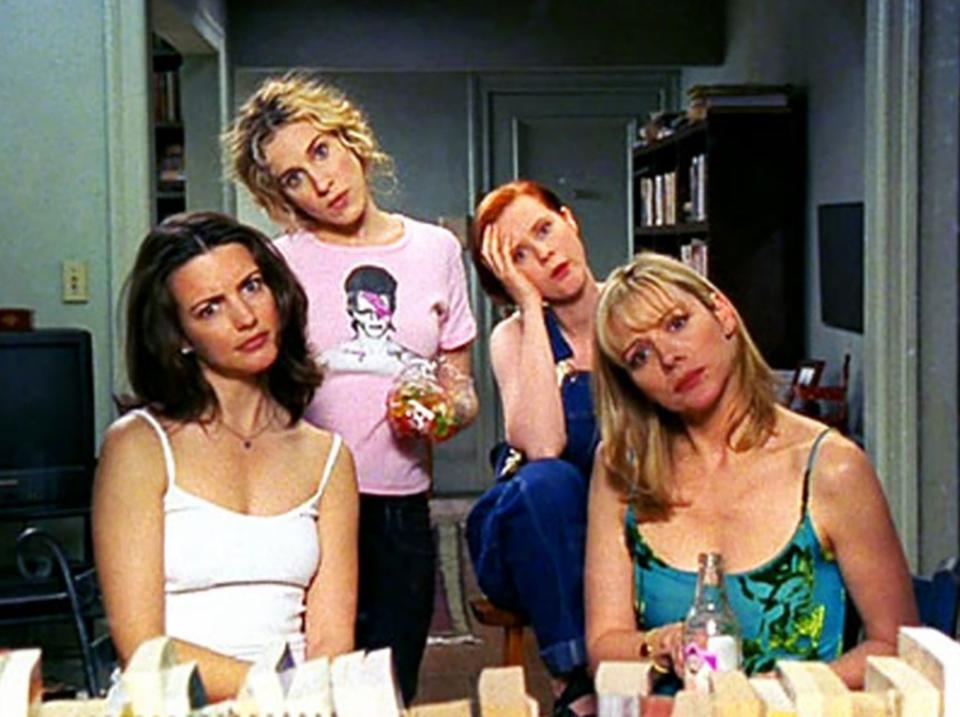
Look, I get that plenty of what was edgy then is less than artful now. But I also know how to put aside my modern sensibilities and appreciate a piece of entertainment in its cultural context.
I can see why this that gained enormous popularity: It speaks truths about the female experience in a post-sexual revolution world with remarkable — and, yes, crude — candor.
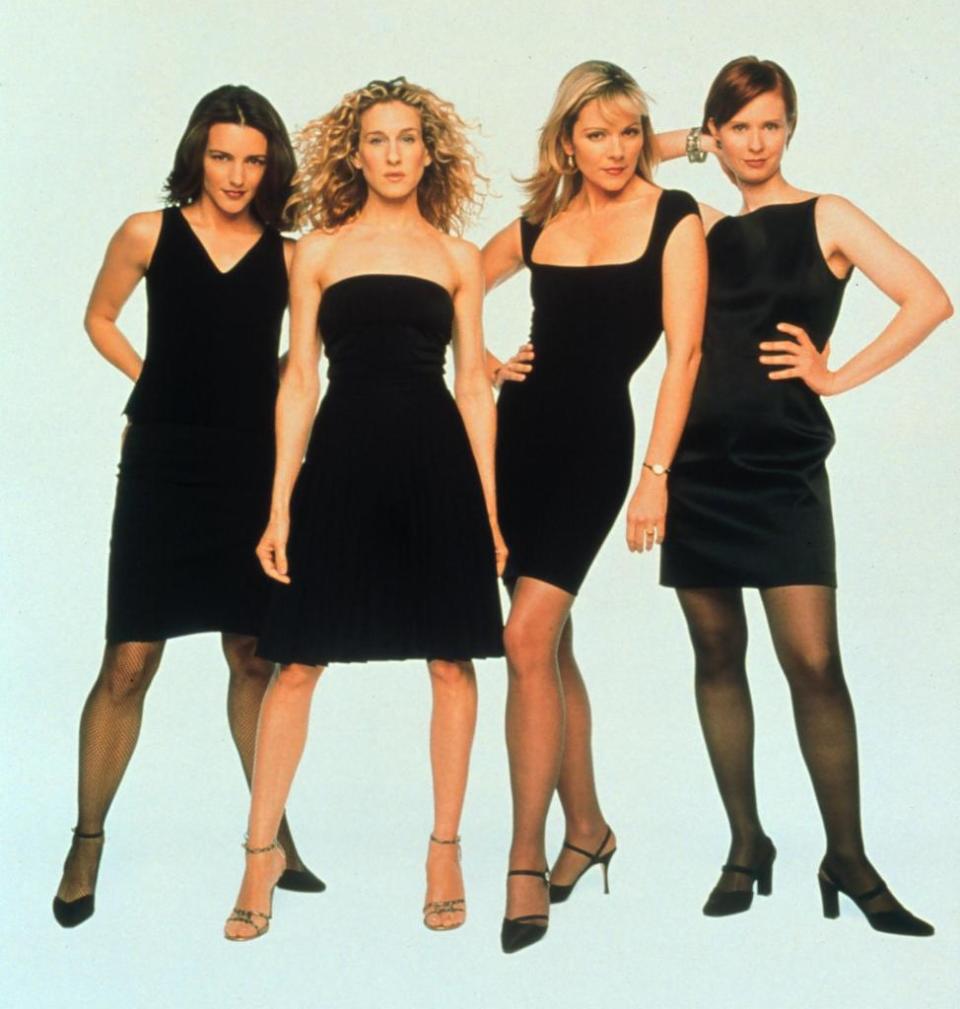
“Sex and the City” had to walk so “Girls” could run. And that will no doubt look painfully out of step one day, too.
What worries me is people who might want to erase history because it offends a new generation.
“Friends,” which ended the same year as “SATC,” had snippets selectively edited out of its Netflix iteration.
And an entire episode of “The Office” — one which poked fun at diversity — was spiked by Comedy Central in reruns.
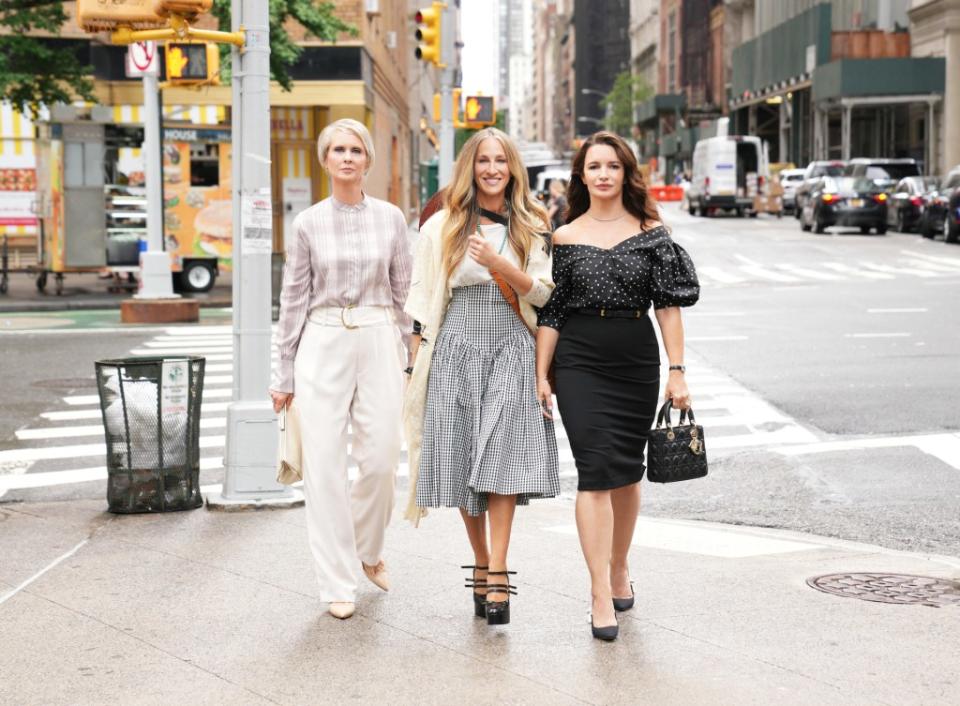
Carrie, Samantha, Charlotte and Miranda’s “problematic” behavior might not be hot today. And that shouldn’t matter.
If you ask me, it’s better to be edgy, provocative and even offensive than woke, preachy, and boring like today’s “SATC” reboot.

 Yahoo News
Yahoo News 
